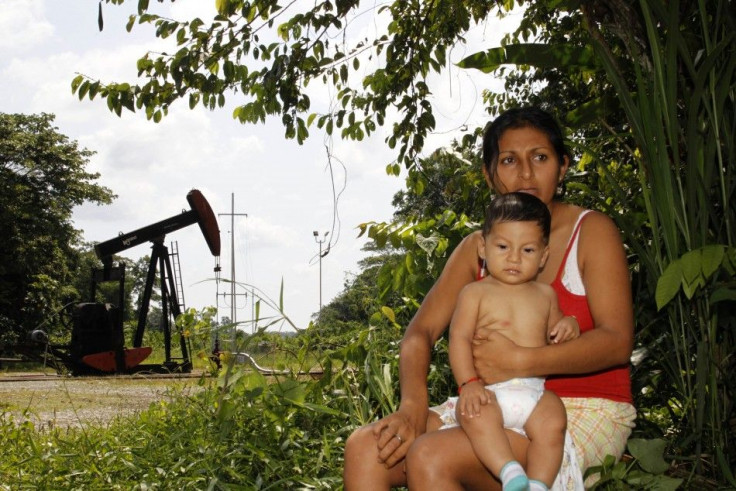Chevron Allegedly Using Secret Panel to Avoid Paying up $18 Billion to Ecuador in Damages

After a U.S. appeals court rejected an injunction that Chevron Corp had won to avoid paying up $18 billion penalty to Ecuador over pollution to the country's Amazon region, the multinational energy giant has been accused of bringing in a secret panel of private lawyers to thwart the court judgments.
Several Latin American advocacy groups have alleged that Chevron is trying to use a controversial private enforcement arbitration under the U.S.-Ecuador Bilateral Investment Treaty (BIT) to interfere with the judiciary of both nations.
Chevron, which operated in Ecuador from 1964 to 1992, under the Texaco brand, had admitted to having dumped more than 16 billion gallons of toxic waste into the streams and rivers used by local inhabitants for drinking, which resulted in dramatically increased rates of diseases including cancer.
After an extended trial conducted over a period of eight years, the Ecuador court ruled against Chevron last year, ordering $18 billion in penalty to clean-up the mess and to restore the Amazon jungle. Chevron turned to the U.S. judiciary to evade penalty, which was granted in the form of an injunction by U.S. District Judge Lewis Kaplan in Manhattan in March 2011.
However, a U.S. appeals court overturned that judgment in January this year, which prompted Chevron to exploit the ambiguity of the bilateral investment treaty signed jointly by the U.S. and Ecuador.
The U.S.-Ecuador BIT allows the U.S. investors to seek monetary damages from the government of Ecuador if they can show unfair treatment. In this case, Chevron has turned the treaty into a tool to try to immunize itself from liability in a private litigation, environment, advocacy groups allege.
Chevron, ranked as one of America's 5 largest corporations by Fortune 500, essentially wants government and people of Ecuador - where the per capita income is $4000 per annum - to fund the cleaning expenses.
Jose Daniel Amado, a specialist in international arbitration, has written a letter to the U.N. Secretary-General Ban Ki-moon, expressing alarm about the egregious misuse BIT arbitration proceedings to deny dozens of indigenous farmer communities of the Amazonian rainforest their basic human rights.
Despite its (Chevron's) previous stipulations to U.S. federal courts that it would respect any judgment from Ecuador, Chevron continues to use questionable litigation tactics to deny those injured any forum to seek justice and compensation for their injuries, the letter said.
Amazon Defense Coalition, an Ecuadorian non-governmental organization, has alleged that a secret panel of private lawyers, nicknamed The Club, has been employed to help Chevron avoid paying anything for its deliberate poisoning of the rainforest.
The environment watchdogs have also claimed that Chevron's arbitration panel has no authority to use a bilateral treaty to direct Ecuador to block the enforcement of $18 billion judgment.
Public Citizen, Amazon Watch and the Rainforest Action Network have announced a protest rally against Chevron's discreet lawyer panel hearing scheduled to be held over this weekend.
© Copyright IBTimes 2025. All rights reserved.






















